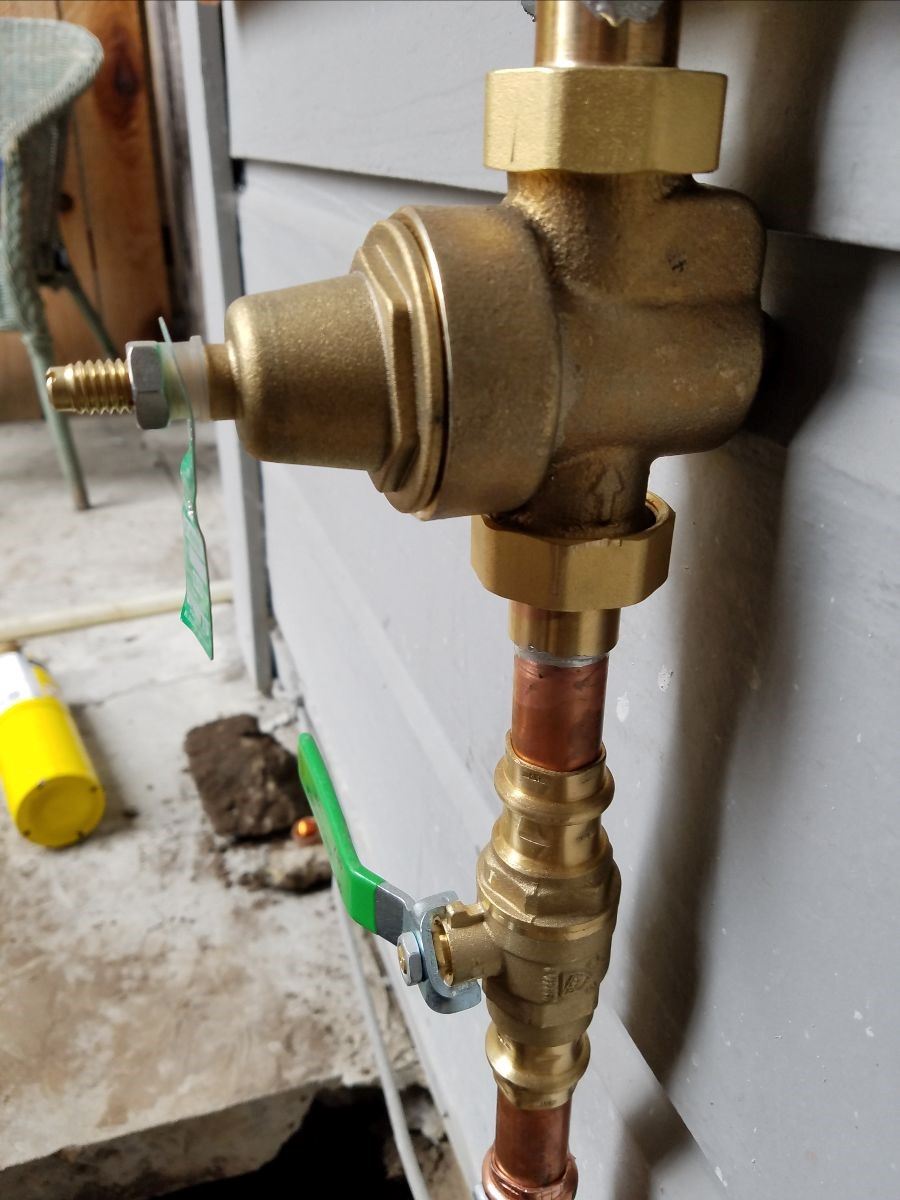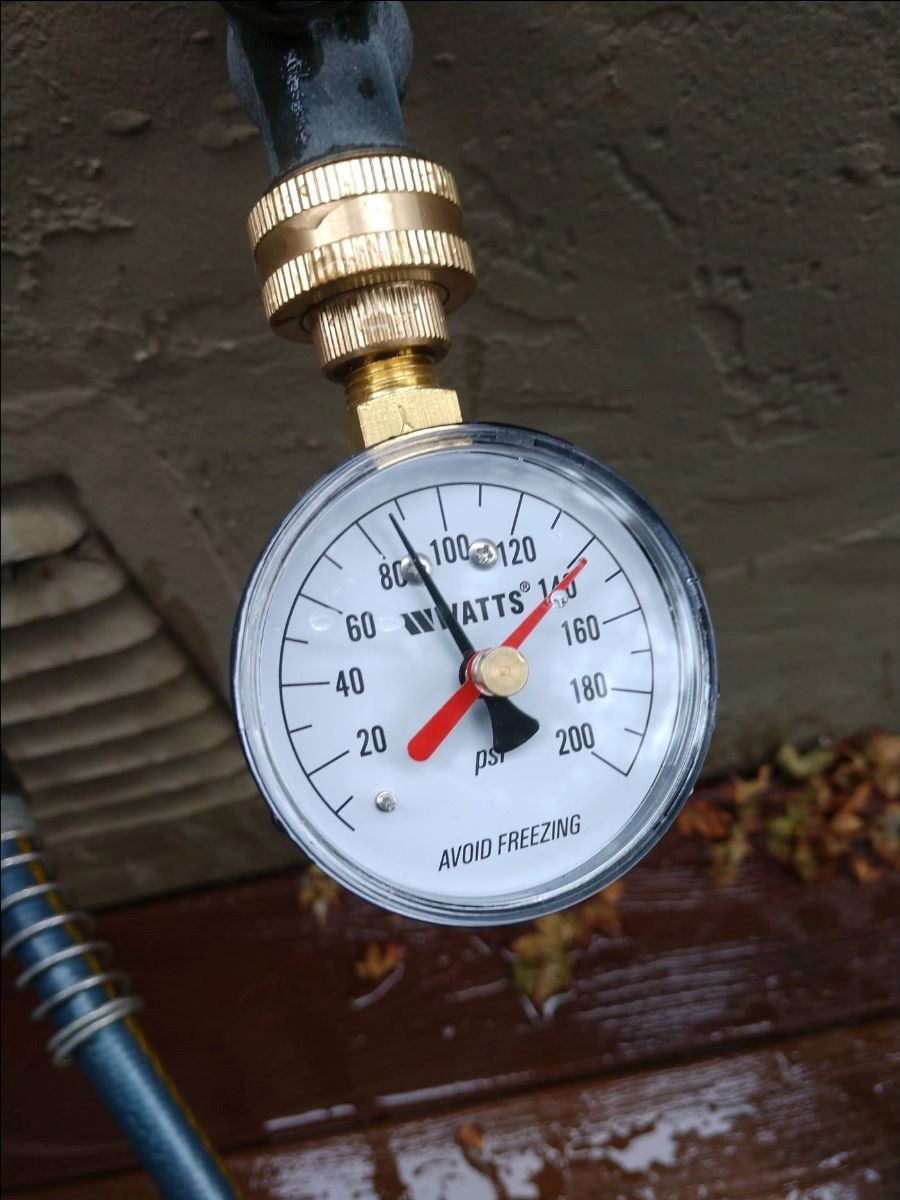What should your water pressure be?Water pressure varies from block to block, even house to house. EBMUD promises a minimum of 40psi. We see pressures range from 45 all the way up to 150psi!
Here are some of the plumbing issues we see that are related to high water pressure:- Blown toilet valves that flood a house
- Burst washing machine hoses that flood a house
- Burst supply lines
- Water heater relief valves dripping or running
- General faucet and shower valve leaks
- Blown irrigation valves
- Failed washing machines, dishwashers, and icemakers.
"MY PLUMBING IS 80 YEARS OLD AND I HAVE NEVER HAD A PROBLEM!"Well, yeah! Eighty years ago, plumbing was made out of iron and brass and the bones of elephants! Now we make all of our plumbing things out of plastic and ceramics and dreams.
New appliances are particularly susceptible to high pressure. Because energy efficiency is so important these days, the solenoid motors (electric motors) that turn on the water to dishwashers, washing machines, irrigation, ice makers etc. are made with very small motors and they burn out much more quickly if they have to work with high water pressure.
Old appliances lasted for 30 years, now we see washing machines failing in just 5 years in some cases.
Get a PRV, I implore you!
What is a PRV?A pressure regulating valve or PRV is a device that limits the maximum water pressure that goes to your home. Basically, it acts like a surge protector for your plumbing system.
A PRV is installed on the main water line before it enters your home and adjusts the pressure to a safe maximum of 75 psi. This is a very usable water pressure and given that your shower is (or should be) restricted to 2.5 gallons per minute, you are unlikely to notice a difference in your shower.Take advantage of our New Years Prevention Opportunity.... |
|
|
Free water pressure check |
|
|
$30 off a Pressure Regulating Valve Installation |
|
|
|
|



